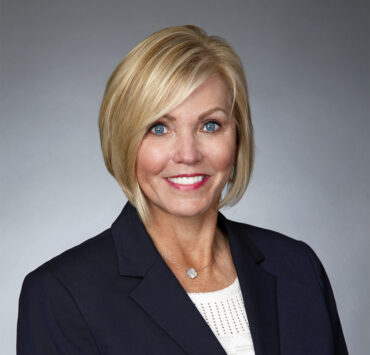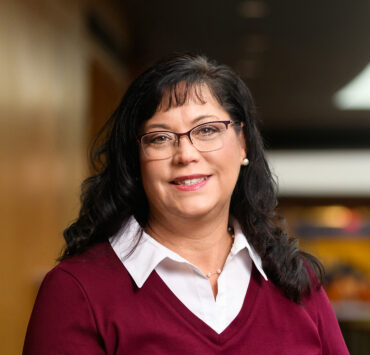John Brown remembers sitting in empty rooms developing great things by himself. That can be the nature of electrical engineering, which Brown studied at DeVry Institute of Technology. While Brown found fulfillment in pursuing technical innovation, there was just one problem: he didn’t like working alone.
Engineers focus on training, process, and data. Brown longed to include people in his work. That doesn’t surprise anyone who knows Brown well. He grew up surrounded by nine biological and adopted siblings and a steady stream of foster family members passing through his home. Brown played team sports and excelled at football. “I’ve always been on a path that’s shown me the reality that every person is important,” he says. “It doesn’t matter who the people are. We all matter.”
Brown knew early on that his career would be with and around people. He got into healthcare by taking a service operations role with Humana before pivoting to human resources.
“You can roll out huge programs, but you really change culture one or two people at a time.”
John Brown
The move was a calculated one. “I had been across the table from HR for many years, and I saw that the best way to effect change in healthcare is to engage and be accountable,” he says. “I wanted to help build teams and inspire people and bring improvements to the work that is being done.”
Brown didn’t train in traditional healthcare HR, but the former athlete knows the value of coaching and training. He studied and earned the SHRM-CP certification for HR management. In 2017, he joined Blue Cross Blue Shield of Louisiana, and spent five years working on major initiatives related to succession planning and diversity, equity, and inclusion (DEI).
In early 2022, John Brown stepped in as chief people officer at Government Employees Health Association, Inc. (GEHA). GEHA serves two million federal employees, military retirees, and their families. The organization’s mission attracted Brown back to his Kansas City home. “I’m all about caring for others, and that is what we do. GEHA is mission-driven, and we serve a niche demographic that is diverse. I knew I could help maintain and grow a diverse workforce to mirror this,” Brown explains.
Diversity at GEHA is important because the value helps the organization offer much-needed medical and dental benefits. Although the DEI foundation was in place, Brown is adding structure to mature and formalize GEHA’s program with a minority talent pipeline. He focused first on bringing diversity to manager-level roles through structured resources, tools, and goals. In Brown’s short time with GEHA, the group has already seen women and people of color moving into key positions.
These efforts are bolstered by a unique “reverse mentoring” program that pairs senior leaders with junior employees. The internally grown program unites people who have differences in at least one category. Brown says the approach helps both parties give and receive knowledge, experience, and wisdom. “You can roll out huge programs, but you really change culture one or two people at a time,” Brown explains.
“I’ve always been on a path that’s shown me the reality that every person is important. It doesn’t matter who the people are. We all matter.”
John Brown
Much of Brown’s leadership philosophy comes from his experience on the gridiron. “I always needed my teammates to win on the field, and healthcare facilities and insurers need contributions from all players to fulfill their missions,” he says. Brown helps each person understand the playbook and know what they need to contribute as they pursue a larger goal together.
As a leader, John Brown also believes in giving everyone in an organization the opportunity to provide actionable feedback. GEHA offers paid time off for its employees to volunteer in the community. However, Brown and his colleagues learned that some employees, especially those in call centers, had less flexibility in their schedules to take advantage of the opportunity.
Thus, GEHA has modified its volunteer policy to offer personal enrichment time. Employees can now enroll in learning sessions or other professional training opportunities. “This sends a strong message that we are listening to feedback and we care about all employees,” Brown says. “We want to do what we can to remove unintentional barriers to participation in company-wide events and activities.”
According to representatives from the Healthcare Industry Group, “John is the consummate ‘chief people officer.’ He is committed to the team at GEHA and will lead the cultural change through fairness and equity for all. He is a role model for what he has accomplished and what he will accomplish in the coming months. We at A&M are proud of John and his passion to do the right thing even if it is difficult.”
Brown is proud of how GEHA supports and gives back to its communities. The organization established the Barbara Sheffield Medical Scholarship with the University of Kansas School of Medicine to provide $1.5 million in annual funding for Black medical school students. The scholarship helps address racial disparities in healthcare by bringing Black physicians to communities throughout the nation. GEHA partners with several schools and community organizations, and its subsidiary, GEHA Solutions, provides $250,000 in scholarships and support to underrepresented students in the dental and dental hygiene fields.
GEHA traces its roots to 1937, when a small group of railway postal workers in Kansas City supported each other in times of need. That evolved into a medical and dental plan provider for federal employees. Now, the organization is one of the largest of its kind in the nation, and John Brown is building the workforce that will continue its long legacy. “We still care for our people, and our people will help us make meaningful contributions in the community and to the people we serve,” he says.

